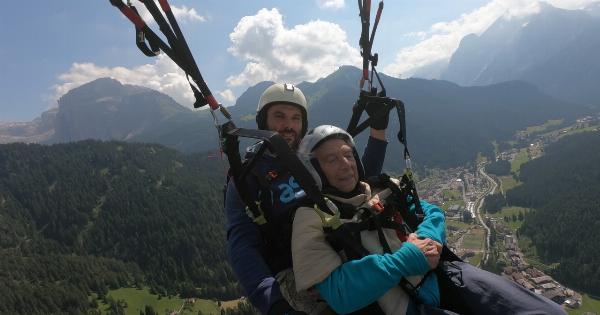Brain trauma refers to any injury or damage to the brain caused by external forces. It can range from mild concussions to severe injuries that result in bleeding and swelling of the brain.
These injuries can have long-term effects on a person’s physical and cognitive abilities.
Types of Brain Trauma
There are two main types of brain trauma:.
1. Traumatic Brain Injury (TBI)
Traumatic brain injury occurs when an external force causes damage to the brain. This can happen as a result of a direct blow to the head, a rapid acceleration or deceleration of the head, or penetration of the skull by an object.
TBIs can range from mild to severe, with varying levels of symptoms and recovery.
2. Acquired Brain Injury (ABI)
Acquired brain injury refers to brain damage that occurs after birth and is not related to a congenital or degenerative neurological disorder. This type of brain injury can result from events like oxygen deprivation, stroke, infection, or a tumor.
ABI can have similar effects to TBI, depending on the area of the brain affected.
Signs and Symptoms of Brain Trauma
The signs and symptoms of brain trauma can vary depending on the severity and location of the injury. Common signs and symptoms include:.
1. Headache
A persistent or worsening headache can be a sign of brain trauma. If the headache is accompanied by other symptoms such as nausea, vomiting, or changes in vision, it may indicate a more severe injury.
2. Loss of Consciousness
Loss of consciousness is a common symptom of traumatic brain injuries. The duration of unconsciousness can range from a few seconds to hours or even days, depending on the severity of the injury.
3. Nausea and Vomiting
Brain trauma can cause an individual to feel nauseated and experience vomiting. These symptoms may occur immediately after the injury or develop gradually over time.
4. Dizziness and Balance Problems
Feeling dizzy or experiencing balance problems can be a sign of brain trauma. This can make it difficult to walk or maintain coordination.
5. Cognitive and Memory Issues
Brain trauma can affect a person’s cognitive abilities and memory. They may have trouble concentrating, struggle with memory recall, or experience difficulty with problem-solving.
6. Sensory Problems
Changes in sensory perception, such as blurred vision, difficulty hearing, or a heightened sensitivity to light and sound, can occur as a result of brain trauma.
7. Mood and Personality Changes
Brain trauma can lead to significant mood swings, irritability, and changes in personality. An individual may become easily agitated, anxious, or depressed.
8. Weakness or Numbness
Brain trauma can cause weakness or numbness in certain parts of the body. This is often a result of damage to the brain’s motor pathways.
9. Seizures
In some cases, brain trauma can trigger seizures. These seizures may be isolated events or develop into a chronic condition.
10. Bleeding in the Brain
Bleeding in the brain, also known as intracranial hemorrhage, can occur as a result of severe brain trauma. This bleeding can put pressure on the brain and lead to further damage if not addressed promptly.
Causes of Brain Trauma
Brain trauma can be caused by various factors and incidents, including:.
1. Falls
Falls are a common cause of brain trauma, especially among older adults and young children. Falls from elevated surfaces or slips and trips can result in head injuries.
2. Motor Vehicle Accidents
Motor vehicle accidents, including car crashes, motorcycle accidents, and pedestrian accidents, are significant causes of brain trauma. The impact of the collision can lead to head injuries.
3. Sports Injuries
High-impact sports like football, boxing, and soccer carry a risk of brain trauma. Repeated blows to the head or collisions during these sports can result in long-term brain damage.
4. Assaults and Violence
Physical assaults, domestic violence incidents, or any intentional act of violence that involves blows to the head can cause brain trauma.
5. Explosions and Blast Injuries
Explosions and blast injuries, such as those encountered in combat zones or industrial accidents, can lead to brain trauma. The force of the blast can cause direct injury to the brain or cause the head to collide with surrounding objects.
6. Shaken Baby Syndrome
Shaken baby syndrome occurs when a baby or infant is violently shaken, resulting in brain trauma. This is most commonly seen in cases of child abuse and can cause severe and long-lasting damage.
7. Penetrating Injuries
Penetrating injuries to the head, such as gunshot wounds or impalements, can directly damage the brain and lead to brain trauma.
8. Surgical Complications
In rare cases, brain trauma can occur as a complication of neurosurgery or other surgical procedures involving the brain.
9. Occupational Hazards
Some occupations, such as construction work or military service, carry a higher risk of sustaining brain trauma due to the nature of the work involved.
10. Medical Conditions
Medical conditions such as strokes, brain tumors, infections, or lack of oxygen to the brain can also cause brain trauma.
Conclusion
Brain trauma is a serious medical condition that can have life-altering consequences. Recognizing the signs and symptoms of brain trauma is crucial for early intervention and treatment.
Understanding the causes of brain trauma can help in prevention efforts and creating safer environments. If you or someone you know experiences any symptoms of brain trauma after an injury, seeking immediate medical attention is essential for proper diagnosis and treatment.




























